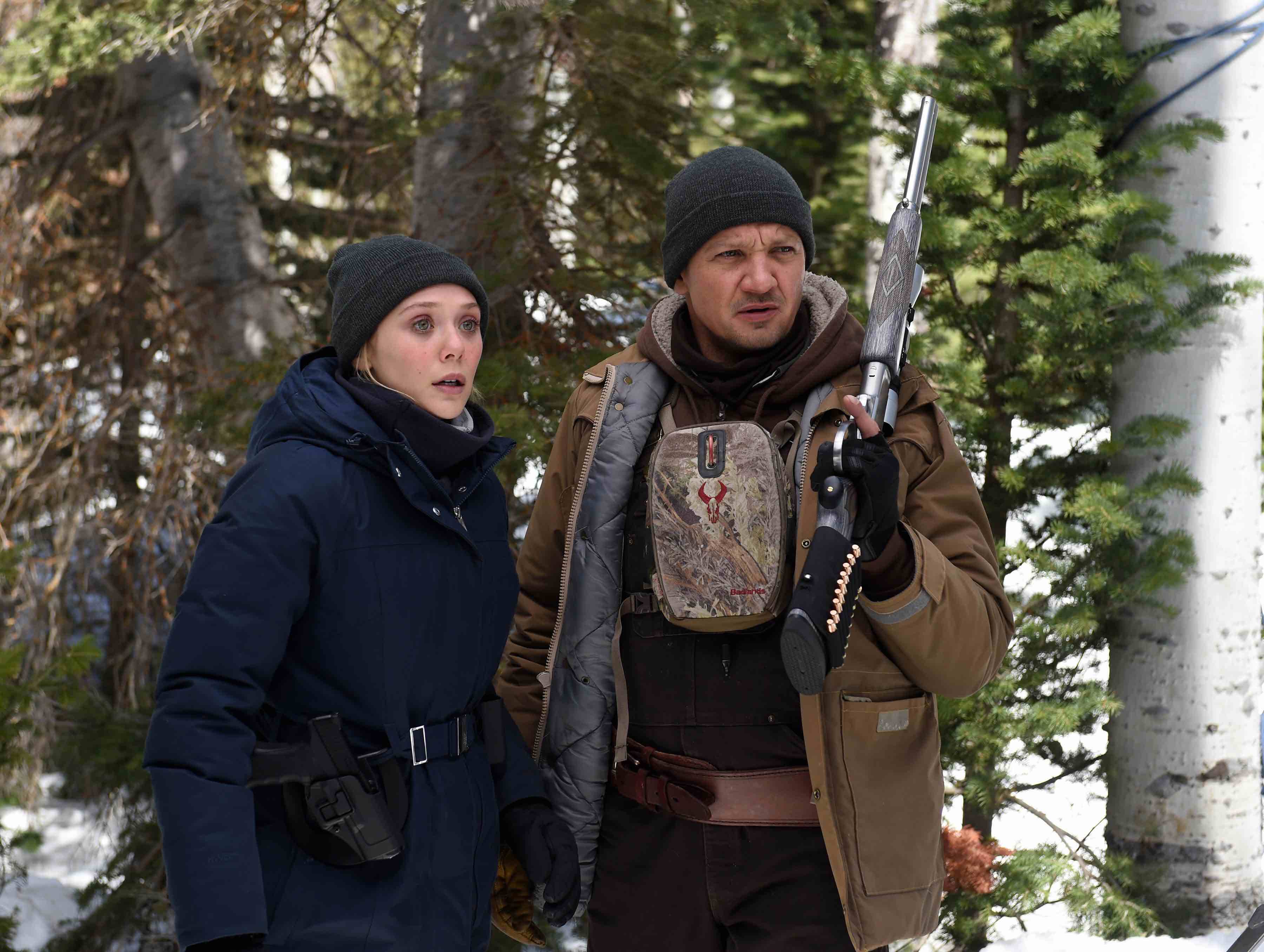By Anna Husted EBS Contributor
“Wind River” was one of my favorite movies of 2017. In my opinion, it should have been nominated for a number of Oscars including best supporting actress for Elizabeth Olsen’s performance. However, “Wind River” is a Weinstein Company film, and was rumored to be unofficially boycotted by the Academy of Motion Picture Arts and Sciences because of the sexual assault and harassment scandal involving the company’s co-founder, Harvey Weinstein.
The irony is, “Wind River” is about the assault and murder of women on Indian reservations in Wyoming, and brings attention to the very abuse it was boycotted for.
“Wind River” has more to say about the abuse of women than any other film released last year, and deserves to be seen in support of victims of abuse, but also simply because it’s a really good film.
“Wind River” is about Wyoming Game and Fish Department tracker Cory Lambert (Jeremy Renner) who helps an inexperienced FBI agent Jane Banner—Elizabeth Olsen at her best—to figure out who murdered a young Native American woman found in the Wind River Mountain Range.
The hunt for the killer opens up a sad and dark history for Lambert, whose own daughter went missing years earlier and had been best friends with the deceased young woman. The search also exposes the sad and dark history of the treatment of Native Americans, especially women. While “Wind River” is not based on an actual event, writer and director Taylor Sheridan makes a point at the end of the film to say it’s based on thousands of events just like it.
Executed with bravado, Sheridan’s beautiful filmmaking addresses issues faced by those forced to live on the fringe of American society through intimate close-up shots and firmly establishes a sense of place with long-wide shots. In a scene where FBI agent Banner is sprayed with mace, Sheridan conveys what being sprayed with mace might actually look and feel like—Banner’s mascara dripping and her chest pumping.
While the naturalistic filmmaking and realistic portrayal of violence caused me to cringe more than once, Sheridan’s delicate approach to sensitive issues is worth facing the violence thousands of women experience every year. Sheridan should be applauded for his strong female characters because he is a male filmmaker telling a strongly female tale.
Sheridan is an up-and-coming director to watch. He has an exacting eye that reveals more about ourselves than we are willing to admit about our continuing history of violence toward Native Americans, especially women. Although Sheridan closes the FBI case, to much satisfaction, he also leaves a gaping wound that needs to be processed by the characters in the film—and in the real world, by the nation as a whole.
With one of the best supporting casts featuring Graham Greene as a no-nonsense sheriff and Tantoo Cardinal as a grief-stricken mother, “Wind River” hits home through excellent acting and filmmaking.
“Wind River” is available to stream on Netflix.
Anna Husted has a master’s degree in film studies from New York University. In Big Sky she can be found behind the bar at Lone Peak Cinema or slinging hot dogs at Yeti Dogs. When not gazing at the silver screen or watching her new favorite TV show, she’s skiing, fishing or roughhousing with her cat, Indiana Jones.












